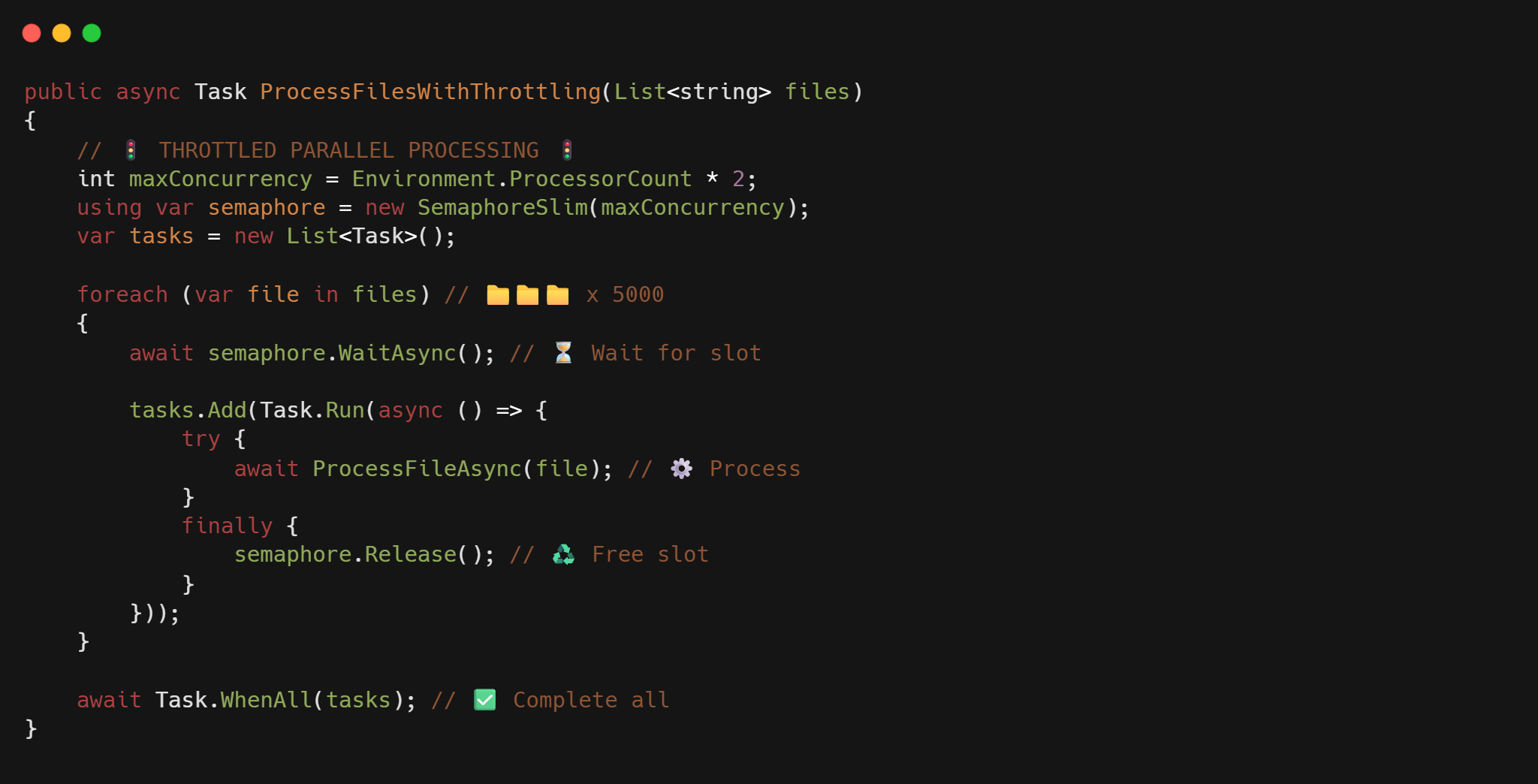
Efficient High-Volume File Processing in C#
TL;DR: Efficient C# File Processing Strategies Prevent system crashes: Avoid naive parallel processing that launches thousands of concurrent file operations. Optimize throughput: Use SemaphoreSlim to control concurrency (start with 2x CPU cores) for balanced performance. Reduce memory consumption: Implement true async I/O with useAsync: true and process files line-by-line instead of loading them entirely. Minimize database overhead: Batch related records from multiple files before making database calls. Maximize system resources: For production systems, implement adaptive throttling that responds to CPU/memory conditions. Leverage modern C# features: Use IAsyncEnumerable for efficient streaming and TPL Dataflow for complex processing pipelines. Ever tried to build an import tool that needs to process thousands of CSV files at once? I have, and I learned the hard way that simply starting a thousand file operations simultaneously is a recipe for disaster. ...